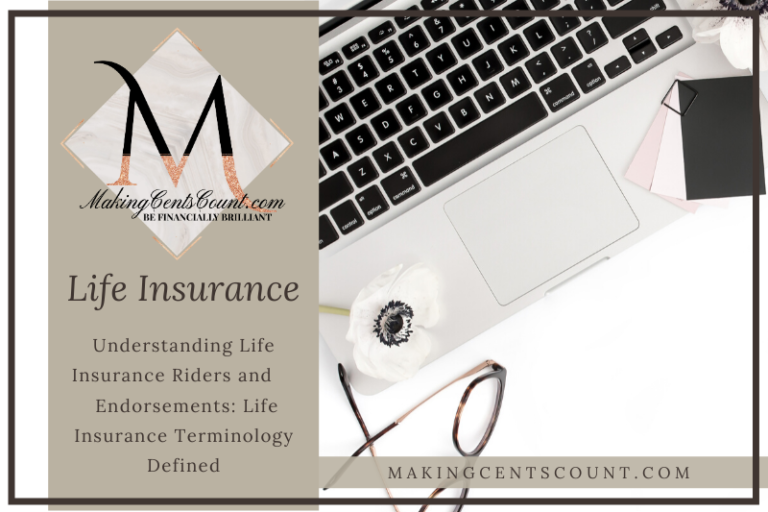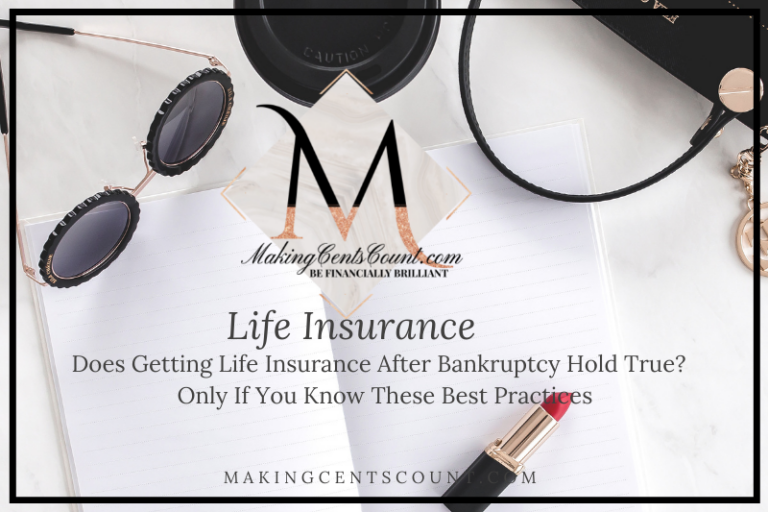Mastering Permanent vs. Temporary Life Insurance: Weighing the Pros and Cons
Estimated reading time: 9 minutes
When evaluating Permanent versus Temporary Life Insurance options, it is vital to carefully assess the advantages and disadvantages associated with each choice. By comprehensively understanding the nuances of both types of coverage, you can make a well-informed decision that will not only safeguard your financial stability but also provide you with the peace of mind you seek when planning for the future. Remember, the decision you make now can have a lasting impact on your loved ones’ well-being and your long-term financial security.
Table of Contents
- Decoding Life Insurance: Unveiling the Two Vital Types
- Life Insurance Made Easy: Unveiling the Simple Truth
- Life Insurance Event Triggers: Stay Ahead of the Unexpected
- Temporary vs. Permanent Life Insurance: Deciding Your Coverage Path
- Cracking the Code: Demystifying Life Insurance Premiums
- Life Unwrapped: When Life Insurance Isn’t a Must
- Unveiling the Top 3 Reasons Why Life Insurance Becomes a Sudden Priority
- Ensuring Peace of Mind No Matter Your Choice
- Your Protection Matters: Burhoe Insurance Solutions
- Making Cents Count Financial Organizer
Are you ready to start investing, control your finances, and prepare for retirement? Join our amazing community! You’ll receive exclusive financial tips from Making Cents Count, as well as unlimited FREE access to our resource library full of money-saving tools and guides.
Decoding Life Insurance: Unveiling the Two Vital Types
Understanding the distinction between the two life insurance types becomes clear when you define the purpose and duration of coverage you want.
Term insurance, also known as temporary insurance, provides coverage for a set time period, or term-length. It is ‘pure’ life insurance that does not build cash value.
Permanent life insurance, such as Whole Life, Universal Life, and Indexed Universal Life, provides lifelong coverage, ensuring you can never outlive it. Additionally, it builds cash value and enables you to access the funds within the policy during your lifetime.
For a deeper understanding of the different types of term life insurance options, feel free to explore just how expensive a term policy can become. I recommend conducting thorough research before making a commitment. This same suggestion applies in the event you’re considering permanent life insurance.
Not a One-Size-Fits-All World
As a quick note, you might have come across “experts” suggesting that you stick to a single life insurance policy type. However, it’s important to understand that life insurance needs vary greatly depending on individual circumstances. Factors such as age, health, financial goals, and family situation all play a role in determining the most suitable life insurance coverage. Therefore, the idea of a one-size-fits-all approach to life insurance is flawed, as it fails to account for the unique needs and preferences of each individual. As we explore further into the complexities of life insurance, you’ll see how individual nuances play a pivotal role.
Life Insurance Made Easy: Unveiling the Simple Truth
Honestly, life insurance isn’t the most sexy topic, I get it. We dive into hypotheticals, wrestle with self-doubt, and face our mortality – no wonder this subject often gets pushed aside.
But, delving into the idea of investing in a life insurance policy and completing the application process isn’t as daunting as it may seem. Prior to taking the plunge, it’s crucial to determine if life insurance is really something you need.
Life Insurance Event Triggers: Stay Ahead of the Unexpected
When considering the investment of a life insurance policy, it typically stems from a triggering event. It’s crucial to have answers to these two questions before moving forward.
- What Changes Are You Expecting in the Next 12 Months?
- Have Any of These Life Events Happened to You in the Past Year?
For a comprehensive checklist of the Event Triggers for Life Insurance (and if they apply to you) go to our Resource Library.
My follow up question would be: “Are you familiar with the difference between temporary and permanent life insurance?” Not surprised, the majority were not.
Temporary vs. Permanent Life Insurance: Deciding Your Coverage Path
As both types of life insurance have distinct purposes, it is crucial to determine early on which policy aligns best with your needs based on the following:
- Are there any current individual life insurance policies in place?
- Is group insurance unavailable from an employer?
- Are there any minor children
- Do you have any mortgage(s)?
- Do you have any outstanding debts (personal or business)?
Quick Guide to Temporary Insurance
- Policy Duration: Choose a fixed term length from options including 10, 20, 30, 35, or 40 years.
- Premiums are fixed for the chosen term length of 10, 20, 30, 35, or 40 years.
- Premium costs are less expensive than Permanent Insurance.
- Does not build up Cash Value
Pro Tip: The longest available term length for life insurance is 40 years, which may not be widely known as it’s less common than the 10-, 20-, or 30-year plans, and is offered only by select insurance carriers.
Quick Guide to Permanent Insurance
- Policy Duration: Life-long coverage
- Typically, a premium remains fixed for life, unless it’s influenced by interest rates.
- Premium costs are more expensive than temporary coverage.
- Accrues Cash Value.
After deciding on the type of life insurance policy you want, it’s time to delve into the details and explore what comes next.
Cracking the Code: Demystifying Life Insurance Premiums
- Age
- Gender at Birth
- Smoker
- Health History
- Family Health History
- Occupation
- Convictions
- Extracurricular Activities
When chatting with a licensed life insurance agent, the answers provided can lead to further questions. These responses play a crucial role in clarifying the type of insurance to consider and, more precisely, determining the insurance carrier that aligns best with your needs.
Numerous life insurance experts argue that regardless of your financial circumstances, life insurance is needed. However, I hold a differing perspective on this matter.
I believe, speaking solely for myself, that there are only two scenarios where life insurance may not be necessary. Stay tuned for more…
Life Unwrapped: When Life Insurance Isn’t a Must
- When you are able to self-insure
- You no longer have any outstanding financial liabilities
When considering life insurance, there are situations where it may not be a necessity. For individuals without dependents or debt, the need for it decreases. Similarly, retirees who have built sufficient savings to cover final expenses and estate planning may find that it’s not essential. Additionally, those with robust investments or retirement accounts that can support their loved ones adequately in the event of their passing may opt to forego it as well. It’s crucial to evaluate personal circumstances carefully to determine if it’s truly necessary.
In addition to not wanting to pass any financial liabilities onto their beneficiaries, here are the 3 reasons someone wants life insurance.
Unveiling the Top 3 Reasons Why Life Insurance Becomes a Sudden Priority
1. Recently Experienced Loss in the Family
In this scenario, the family members ended up having to cover the funeral costs. They not only handled the money side of things after the loss but also tackled many tasks afterward. Besides the financial stress, they faced the first waves of emotional turmoil, and in many cases felt physical pain from the grief and overwhelm.
After the funeral, when everyone’s back to their regular routines, comes a new phase. It’s about adjusting to a “new normal” without the deceased. People who have dealt with this situation try not to burden others. Their main focus is on sparing loved ones from going through the same difficulties they experienced.
Funerals come with a significant financial burden, encompassing not only the funeral costs but also final expenses and other incidental charges. Regardless of their scale, funerals inevitably entail a hefty price tag that can catch you by surprise.
2. Experienced a Shocking Loss: “Died Too Young”
The situation in this story is that the individual was considered “so young and healthy” that life insurance was deemed unnecessary. As a result, no life insurance policy had been established.
In many, if not most cases, you might come across a GoFundMe account. It serves as a platform for requesting monetary donations to cover funeral expenses. While it may seem straightforward, it’s important to note that a GoFundMe account is not a replacement for life insurance.
3. Dealing with a New Diagnosis: Navigating “Illness/Disease”
This third and final reason is a standout for me. When individuals reach out expressing their eagerness to secure a life insurance policy, it always piques my interest. Needless to say, it leads to the most engaging conversations. The reasoning behind it (more times than not) is that often the caller has recently received a diagnosis of an illness or disease.
But, in my experience, this is what the caller is ultimately trying to accomplish : they are rushing to secure a policy before their latest medical records are released and received by the insurance carrier. Because I’ll be honest, nobody is “that” excited about getting life insurance for themselves – ever.
Ensuring Peace of Mind No Matter Your Choice
I want to reassure you about the topics we’ve discussed, especially the last three. I bet these got you thinking about your own situation. It’s totally normal to think like this, and believe me, I get it.
Having a current or past medical condition doesn’t preclude you from obtaining a life insurance policy. There is always hope!
Not everyone will fit the mold of the “perfect specimen” in the realm of life insurance – and that’s perfectly fine!
Depending on your health and family history, among other factors, your premiums may be higher than the average individual’s rates. However, rest assured, it’s not as scary as it may seem!
Your Protection Matters: Burhoe Insurance Solutions
Don’t leave your family’s future to chance. Let Burhoe Insurance Solutions help you secure the best coverage for your needs and budget. Our experienced team will guide you through the process and ensure that you get the coverage you need for the peace of mind you deserve.
If working on your finances is one of your goals right now (or, maybe it’s been a goal for some time), I suggest starting with the Making Cents Count Financial Organizer.
Our financial organizer is the robust answer you need. The organizer is our DIY financial services option, providing you with the tools to eliminate financial overwhelm.
- Clear strategies to get your finances under control
- Processes to organize and streamline your investments
- Guidance to track your legal documents, tax information, and permanent records
- Markers to know when you should meet with an attorney to establish a will or trust
- Templates, checklists, and step-by-step actions
- Insights on the financial-must haves to build a secure future
- Detailed How-To Guide for optimal results
If you want financial confidence, grab the Financial Organizer, and get results that fit *your* lifestyle!
Making Cents Count Financial Organizer
Once you get your budget rolling, check out my post on 6 Simple Steps to Get Financially Organized. This post also includes a helpful checklist available in my Resource Library (free to access).
Admittedly, this particular checklist has a larger-scale focus on your overall financial picture, but I genuinely feel that getting your finances organized is essential.
I’m so excited to invite you to join our Financial Success Society Waitlist! Our enrollment opens soon (so don’t miss a chance to get on the notification list). Your journey to financial success is unique and with this exclusive membership, you’ll receive the guidance you desire, enabling you to move financially, no matter where you are in your financial journey. At Making Cents Count, we offer an array of outstanding products and services to help you get control of your finances so they won’t control you!







